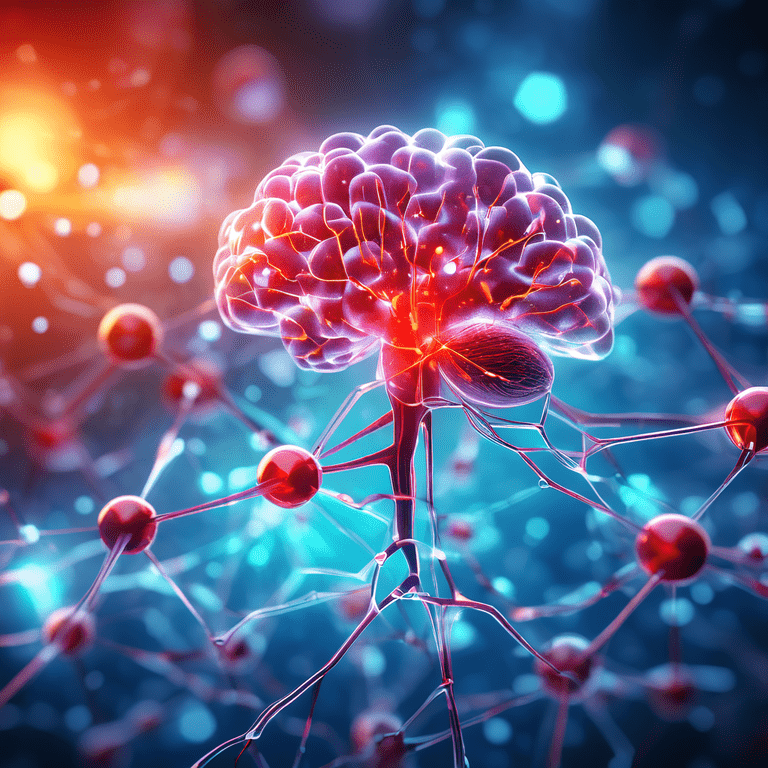Ibogaine Therapy for PTSD: Potential Benefits
Ibogaine Therapy for PTSD: Potential Benefits
Introduction to Ibogaine Therapy
In recent years, alternative therapies have gained attention for their potential in treating various mental health conditions. One such therapy that has piqued interest is Ibogaine therapy, particularly for its potential benefits in addressing Post-Traumatic Stress Disorder (PTSD). This article delves into the concept of Ibogaine therapy and its potential advantages for individuals struggling with PTSD.
Understanding PTSD
What is PTSD?
PTSD, or Post-Traumatic Stress Disorder, is a mental health condition that develops in individuals who have experienced or witnessed a traumatic event. These events can range from natural disasters and accidents to combat exposure and violent assaults. PTSD can manifest through a range of symptoms, including flashbacks, nightmares, severe anxiety, and uncontrollable thoughts about the event.
Symptoms of PTSD
The symptoms of PTSD can vary from person to person but often include re-experiencing the traumatic event through intrusive memories, flashbacks, or nightmares. Other symptoms may involve avoidance of reminders of the trauma, negative changes in mood and thinking, and heightened arousal or reactivity.
Conventional Treatments for PTSD
Conventional treatments for PTSD typically involve a combination of psychotherapy, such as cognitive-behavioral therapy (CBT) and medication, such as antidepressants or anti-anxiety drugs. While these treatments can be effective for many individuals, some may not respond adequately or may experience unwanted side effects.
What is Ibogaine?
History of Ibogaine
Ibogaine is a psychoactive substance derived from the root bark of the Tabernanthe iboga plant, native to Central Africa. It has been used for centuries in traditional spiritual ceremonies and rituals by indigenous peoples, particularly the Bwiti religion in Gabon.
How Does Ibogaine Work?
Ibogaine is believed to work on multiple neurotransmitter systems in the brain, including serotonin, dopamine, and glutamate. Its unique pharmacological properties are thought to help individuals undergoing therapy to gain insights into their past experiences and traumas, leading to psychological healing and personal growth.
Ibogaine Therapy for PTSD
Research Studies and Findings
While research on Ibogaine therapy for PTSD is still in its early stages, preliminary studies have shown promising results. Some research suggests that Ibogaine may help individuals with PTSD by disrupting maladaptive thought patterns and facilitating emotional processing of traumatic memories.
Potential Benefits of Ibogaine Therapy for PTSD
The potential benefits of Ibogaine therapy for PTSD include its ability to induce profound introspective experiences, promote neuroplasticity, and alleviate symptoms of depression and anxiety. Some individuals report a sense of spiritual connection and profound insights into their trauma during Ibogaine sessions.
Safety and Risks
Side Effects of Ibogaine
It’s essential to acknowledge that Ibogaine therapy is not without risks. Common side effects may include nausea, vomiting, dizziness, and changes in blood pressure and heart rate. In rare cases, severe adverse reactions, including cardiac complications and neurological effects, have been reported.
Risk Factors to Consider
Certain factors, such as pre-existing medical conditions, psychiatric disorders, and concurrent substance use, may increase the risk of complications during Ibogaine therapy. It’s crucial for individuals considering Ibogaine treatment to undergo thorough medical screening and evaluation by qualified healthcare professionals.
Legal Status of Ibogaine
The legal status of Ibogaine varies by country and jurisdiction. While some countries allow the use of Ibogaine for medical or research purposes, others have strict regulations or outright bans on its use. Individuals interested in Ibogaine therapy should familiarize themselves with the legal landscape in their region.
Personal Experiences and Testimonials
Many individuals who have undergone Ibogaine therapy for PTSD report positive outcomes, including reduced symptoms, improved emotional well-being, and a greater sense of resilience. However, it’s essential to approach personal testimonials with caution and recognize that experiences may vary from person to person.
Cost Considerations
The cost of Ibogaine therapy can vary depending on factors such as the treatment facility, duration of therapy, and additional services provided. It’s essential for individuals to consider the financial implications of Ibogaine treatment and explore options for insurance coverage or financial assistance, if available.
Availability and Accessibility
Access to Ibogaine therapy may be limited in some regions due to regulatory restrictions or a lack of qualified providers. Individuals interested in exploring Ibogaine treatment for PTSD should research reputable clinics or treatment centers and consider factors such as safety protocols, staff credentials, and patient testimonials.
Alternative Therapies for PTSD
While Ibogaine therapy shows promise as an alternative treatment for PTSD, it’s essential to recognize that it may not be suitable for everyone. There are several alternative therapies and complementary approaches available for individuals with PTSD, including mindfulness-based interventions, yoga, acupuncture, and Eye Movement Desensitization and Reprocessing (EMDR) therapy.
Conclusion
In conclusion, Ibogaine therapy holds potential as a novel approach to addressing PTSD, offering unique insights and therapeutic benefits for individuals struggling with the aftermath of trauma. However, it’s essential to approach Ibogaine therapy with caution, considering the safety risks, legal considerations, and alternative treatment options available. Further research is needed to elucidate the efficacy and safety of Ibogaine therapy for PTSD fully.
FAQs
- Is Ibogaine therapy legal everywhere?
Ibogaine therapy’s legal status varies by country and jurisdiction. It’s essential to research the laws and regulations governing its use in your region.
- What are the potential risks of Ibogaine therapy?
Ibogaine therapy carries risks of adverse effects, including cardiac complications, neurological issues, and psychiatric reactions. These risks underscore the importance of medical screening and supervision.
- How long does the effects of Ibogaine therapy last?
The effects of Ibogaine therapy can vary in duration, with some individuals experiencing lasting benefits in terms of reduced PTSD symptoms and improved well-being.
- Is Ibogaine therapy suitable for everyone with PTSD?
Ibogaine therapy may not be suitable for everyone








